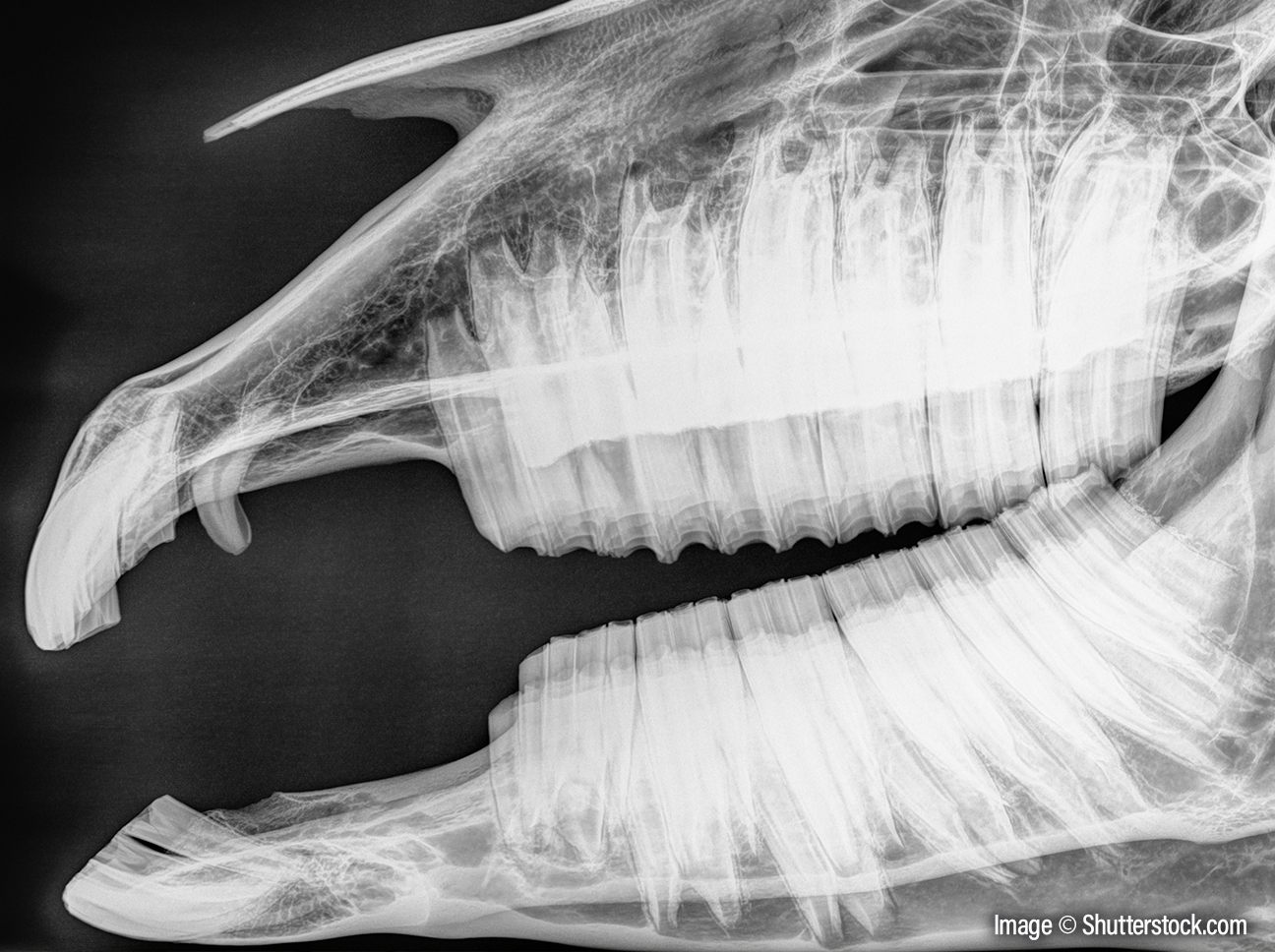Regular dental checks should be part of your horse or pony’s routine preventative medicine program along side vaccination and worming. Dental checks should be performed a minimum of every 12 months in normal horses. Dental problems that are not addressed early on in their development can progress and easily be undetected by owners as the horse appears to have no problems. By the time problems are exhibited the dental disease is often severe and requires extensive treatment over a long period of time. Regular dental checks allow early recognition of dental overgrowths, other problems and development of a preventative treatment plan tailored to each horse.
Dental Lifespan of the Horse
6 days – first baby incisor erupts
6 weeks – second baby incisor erupts
6 months – third baby incisor erupts
0-1 months – 2 baby premolars erupts
1-24 months – Wolf teeth erupt
2.5 years – first permanent incisor erupts
3.5 years – second permanent incisor erupts
4.5 years – third permanent incisor erupts
1year – first molar erupts
2 year – second molar erupts
3.5 years – third molar erupts
2.5 years – first permanent premolar erupts
3 years – second permanent premolar erupts
4 years – third permanent premolar erupts
4-20 years – all teeth continue to erupt at 2-3mm per year and are worn away at the same rate by chewing up feed
20-30 years – the teeth run out of reserve crown and cannot erupt any further so are either worn down to the gum line or fall out
Why do your horse’s teeth need rasping?
When the horse is fed a diet consisting mainly of roughage (grass/hay/haylage) the jaw makes wider movements and the grinding forces are spread evenly over the surface of the teeth. When concentrates (grains/molasses) are being chewed much smaller jaw movements are made and the teeth don’t wear evenly. The result is sharp enamel points on the outside of the upper teeth and the inside of the lower teeth, which often cause ulcers as they rub against the soft tissues of the mouth.
Rasping removes the excess enamel points and prevents ulcers and pain caused when the bridle pushes the cheeks against them.
Some horses have abnormalities with their teeth and need to be treated more frequently for example every 6 months. This is because only a limited amount of tooth can be removed at one time (a maximum of 4mm) before the sensitive pulp is exposed. Some corrections will therefore have to be made over several months. Other horses will have recurring problems that need treating every 6 months to prevent the overgrowths becoming so severe.
When do your horse’s teeth need checking?
The first check will be at the post foaling check up. The next routine check could be at 1 year and then at least every year after this or definitely before fitting a bit or bridle. Between the ages of 1 and 4 years when the baby (deciduous) premolars are being lost and replaced with permanent teeth your horse may need more frequent checking to make sure this process is occurring normally. Sometimes the baby teeth (caps) do not fall out when they should and they have to be removed with forceps to allow the permanent tooth through.
Another common time that horses require more frequent dental check ups is when they get older and their teeth wear out from 20 years +.
A dental check will be required promptly if any of the following signs of dental disease are exhibited.
- Smelly breath
- Difficulty chewing
- Dropping of food when eating
- Facial swelling
- Bitting problems/resistance
- Nasal discharge
- Discharging tracts from the face
- Weight loss
- Trauma (bleeding)
- Head shaking
- Large fibre particles in the faeces
Dental Problems That Cause Overgrowths
Hooks
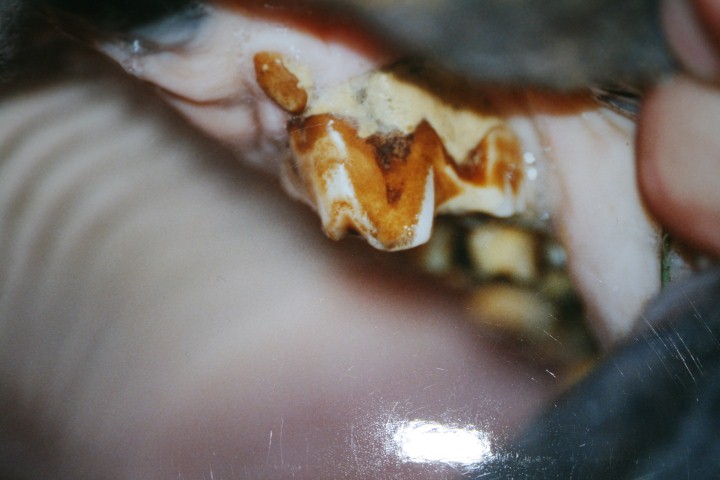
Overgrowths are usually seen on the front teeth at the top and the back teeth at the bottom. Hooks restrict the movement of the teeth against each other and therefore restrict the movement of the jaw. They make it very uncomfortable for the horse to work on the bit.
Displacements
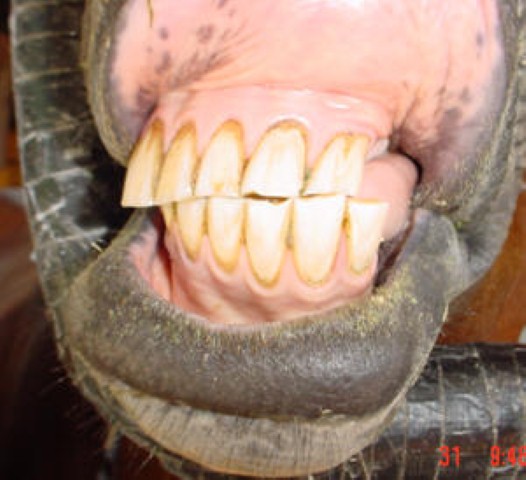
Sometimes teeth become displaced to one side and are not worn properly by the opposing tooth. Overgrowths will occur quickly on such teeth.
Missing Teeth/Extra Teeth
If present then an extra tooth or the tooth opposite a missing tooth will have nothing to wear against and the whole tooth will become overgrown forming a step.
Diastema
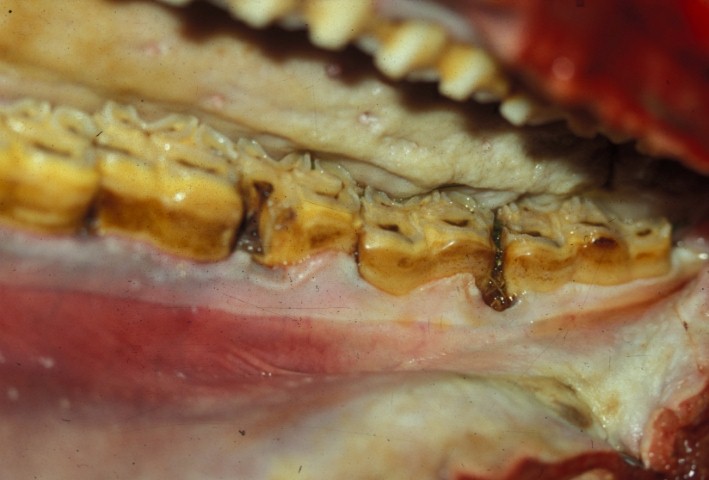
Gaps in between teeth which allow overgrown ridges to occur on the tooth opposite the gap. These gaps also cause food trapping which can result in painful infection of the gums.
Other Dental Problems
Caries- Dental Decay
An infection in the tooth that weakens the tooth structure making it more susceptible to breaking/crumbling or getting a root infection and just nasty sharp edges and ulcers. See our information sheet on Dental Caries here
Fractured Teeth
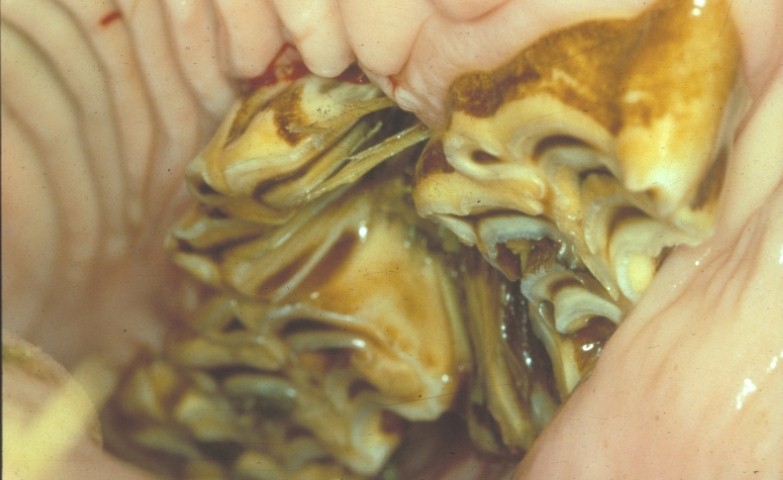
These usually require removal because of the soft tissue damage the fragments cause. Fractured teeth can cause a great deal of pain when the horse tries to eat.
Root Infections
These can be primary infections or occur secondary to caries or fractures in the crown of the tooth. Infections result in abscess formation and the pus which accumulates often causes a tract that bursts out on the face, jaw, in the nose or in the sinuses. Occasionally such infections can be treated or at least kept at bay with antibiotics but they often recur and may necessitate extraction of the tooth. Extraction can be done with forceps applied via the mouth of a sedated horse in about 80% of cases. If unsuccessful the horse will need to have a general anaesthetic in order to remove the tooth. See further information on Dental Caries here
Corrective Procedures
Rasping
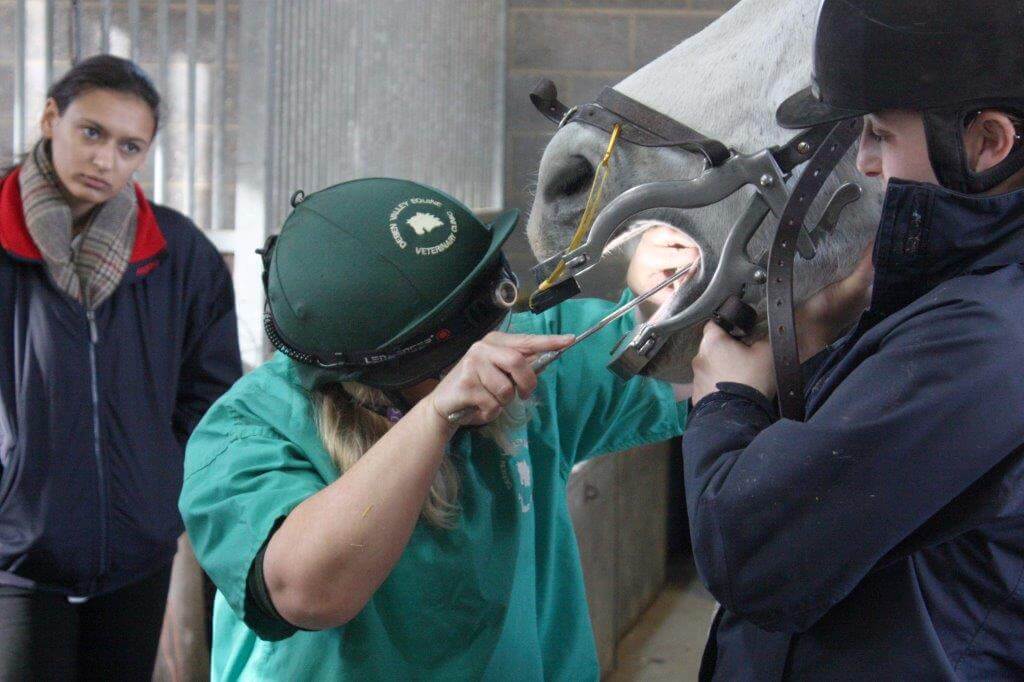
Nearly all horses will have some sharp points to their teeth which need to be removed by rasping with a carbide or synthetic diamond blade. In young horses, we like to introduce hand rasps for their education but most horses will be routinely rasped with a modern power tool without the need for sedation.
If there are large overgrowths, particularly when a whole tooth is overgrown, it is necessary to have good visibility and access to reduce the tooth back to the right level. If large hooks need to be reduced or there is soft tissue damage such as ulcers or diastema then sedation is required. Otherwise most horses tolerate power rasping unsedated. Over rasping leaves horses teeth too smooth without the ability to grind food correctly and therefore the use of power tools requires skill and precision.
Wolf Teeth Extraction
Wolf teeth can interfere with the horse’s acceptance of the bit when it is being ridden and they need to be removed. The horse has to be sedated to do this and then local anaesthetic is injected into the gum around the wolf tooth. The gum has to be peeled away from the tooth with a sharp elevator and loosened before the tooth can be grasped with forceps and wiggled from its socket. Once Wolf teeth have been removed a bit shouldn’t be put in the horse’s mouth for 7-10 days to allow the gums to heal.
Sedation
Some horses are quite resentful of having their teeth rasped and will throw their heads around making it impossible to do the job safely and without hitting the horse’s mouth with the rasp. We always recommend such horses are sedated so their mouths can be checked thoroughly and a proper job done of rasping their teeth. We also recommend sedation for anxious horses, those with neck problems and those requiring a lengthy procedure. But in general, a better dental examination will be carried out on any horse that is sedated and sore gums will not be missed. We will always try to be patient and introduce young horses to rasping quietly and gradually if necessary.
All of the vets at Deben Valley Equine Clinic are experienced in dentistry and will be happy to perform a routine check up of your horse or investigate any problems they may have. Please call the clinic on 01728 685123 to discuss your horse’s dental needs, obtain a quote or book an appointment. Our standard dentistry fee includes sedation if required is £69 for a thorough mouth examination and routine rasp. It does not include wolf teeth removal, treatment of fractured teeth, diastema, gum disease or overgrowths. Additional treatments and more advanced procedures such as radiography or dental endoscopy (oroscopy) will be invoiced individually.
Last reviewed July 2021
